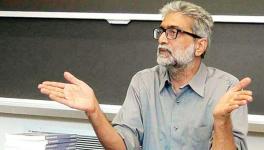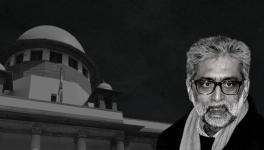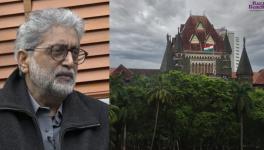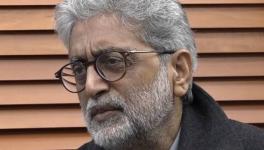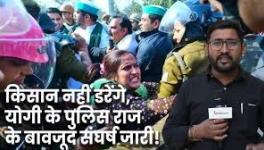Bhima Koregaon: A Fractured Verdict That Admits to Lapses in Probe
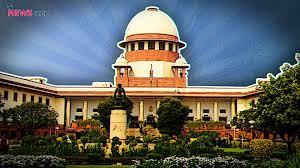
Supreme Court vindicates our stand; Maoists were trying to kill PM Modi: Devendra Fadnavis. This comment was made by the Maharashtra Chief Minister immediately after the Supreme Court delivered a fractured mandate with a 2:1 majority in the petition filed by Romila Thapar- historian, Prabhat Patnaik-economist, Devaki Jain-economist and Padma Bhushan awardee, Satish Deshpande-sociologist and Maja Daruwala-human rights activist . This petition was filed for constitution of a Special Investigation Team and bail to the five civil liberties activists who were arrested/detained on August 28, 2018.
The primary issue that was debated in the SC was whether the court should intervene in the arrests or should the investigating agency (the Pune police) be allowed to carry out its investigation. Aspersions were cast on the Pune police right at the beginning and the manner in which the arrest of these five activists was conducted in the country. It looked quite evident that the real motive was different from what is being projected in the mainstream media. This led to a petition being filed in the SC by five individuals who are experts in their own fields.
The issue that came to light was the jurisdiction of the SC in its intervention under the Unlawful Activities (prevention) Act (UAPA), a re-incarnation of the draconian TADA and POTA. The majority opinion upheld that there was no need to intervene and the accused should seek remedy through the due course of law. But what is the due course of law? The provisions to seek relief of bail are a complete anti-thesis of criminal jurisprudence where it is not the state but the accused who has to prove his/her innocence beyond doubt. That is why bails are hardly granted. It means that once a person is picked up under the UAPA it will take years together for him/her to come out of the jail.
Why is it that the SC did not allow the accused to be immediately arrested? As we all know, there is no provision of bail under the UAPA. Also, there is no provision of an anticipatory bail. Hence, the provision of seeking a remedy under the writ petition was itself a debatable issue.
However, the SC not only allowed the house arrest to continue for a period of more than one month but even allowed a further period of four weeks for the activists to not to be arrested.
What does this signify? Once the petition for a SIT gets dismissed and bail not granted, the accused should have been handed over to the Pune police. But this did not happen immediately. Instead, house arrest has been extended for another four weeks.
This amply demonstrates the point that the SC, too, is not satisfied with the way the investigations are being conducted. The dissenting opinion of Justice Chandrachud is a scathing indictment of the Pune police. He has termed the entire exercise as an attempt to muzzle dissent and the police sponsoring a media trial of the accused. Nothing could be worse for a police to face a comment of the order, as delivered by the dissenting judge. Even keeping his opinion aside and considering the judgment of the Chief Justic of India Dipak Misra and Justice Khanwilkar, who is considered a bookish judge, nowhere have they mentioned or given a clean chit to the police of Maharashtra. In fact, the same bench not just admitted the petition but heard it for a period of one month. This is generally not the case with those booked under UAPA.
The rejoicing statements made by the Maharashtra CM and by the spokesperson of the Bharatiya Janata Party (BJP) are aimed at building up a campaign on the lies that get spread as post-truth reality. Sitaram Yechury, General Secretary of CPI(M), in one of his columns, explains how this new post-truth campaign is completely divorced from the ground realities and harps solely on the propaganda unleashed very sharply. One of the reasons for harping on such post-truth propaganda is to divert the attention of people from their actual miseries.
But these statements are warnings bells for the rising wave of dissent in our polity. We all know about the ‘five’ who have been arrested. They are not just lawyers, poets, journalists, writers and civil rights activists in their own capacities, but also those who do not hide their identities. Take, for example, Gautam Navlakha’s articles and opinion that quite unambiguously express his position on Kashmir and other issues. Similarly, the views of other individuals may not match the views of the ruling dispensation, but that does not turn them into ‘terrorists’, as proclaimed by the Pune police. And it is this very point that Romila Thapar expressed in her remarks. She stated that the forms of terrorism are varied; one is that of individuals and groups that embark on this path and another is by the state itself to muzzle dissenting voices. Both these forms are to be combated and fought back.
Only time will tell whether the five activists, now under house arrest, will see the dawn of liberty within four weeks, or whether the state will be able to get its way and draw them into a long-drawn battle.
Get the latest reports & analysis with people's perspective on Protests, movements & deep analytical videos, discussions of the current affairs in your Telegram app. Subscribe to NewsClick's Telegram channel & get Real-Time updates on stories, as they get published on our website.










